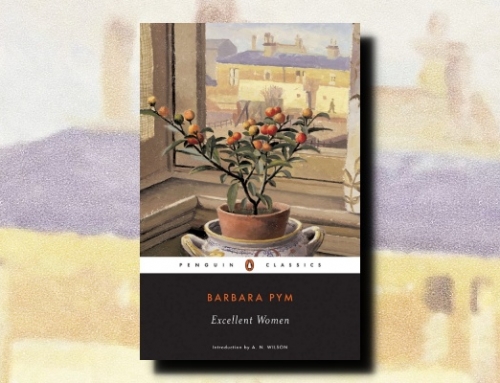The Keep by Jennifer Egan (2006) Anchor (2007) 255 pp
You may remember that I read and loved Jennifer Egan’s new book A Visit from the Goon Squad. While looking up various discussions about that book, I found quite a bit of esteem for her past books and couldn’t wait to get my hands on one. Look at Me was a finalist for the National Book award in 2001, but it wasn’t at the bookstore the day I went there, so I picked up The Keep. I didn’t feel like I was settling. Not only was The Keep fairly well received in its day, the back of the book promised an exciting story: something about a teenage prank and the restoration of an old European castle by those same teenagers now grown up. That might not normally appeal to me, but I was still on a Jennifer Egan kick and she could do no wrong. But I did have a tough time with The Keep: it is a very strange neo-Gothic book.
Before we get into the book, though — because, in the end, I didn’t really like it — I just want to say a few words about Egan’s writing. In A Visit from the Goon Squad Egan uses a variety of voices and forms to convey a complex and satisfying story. I hoped that The Keep would go in somewhat the same vein (though I knew there would be no PowerPoint chapter); indeed, the first chapter is great. It tells about that childhood prank that ends so terribly, and I would recommend the book for the first thirty or so pages alone.
In their youth, cousins Howie and Danny were friends (though Danny always had his misgivings). Howie made the world around them exciting by constantly imagining another world, albeit a geeky world full of dungeons and dragons themes. Danny loved it, but he knew that imagining fantastic creatures was not cool. He felt like a dork, and he could see that the other cousins thought he was pushing it. Howie, to them, was a chubby loser; he fit the geek mold, and there was no getting around it. Danny had more potential but risked being a loser by association. Egan, in just a few pages, does an excellent job building up a complex rival relationship, only Howie seems oblivious to the rivalry, making Danny’s prank an act of betrayal, even if it hadn’t ended so badly. As it turns out, the prank ends very badly; it separates Howie and Danny for years, though it does seem to free Danny for a time to become the kind of person he thought he should be.
Now, twenty or so years later, Danny doesn’t know who he is. A lot of promise has been washed away by years of going nowhere. He now dresses gothic and wears mascara, and, while he’s recognized on the streets of New York City, he has no idea who he really is. This is exacerbated by the fact that he cannot disconnect from the digital world. He must have email (in fact, he has a sixth sense for wi-fi connections) and near constant chatter on the phone.
After the chilling first chapter, we follow Danny as he frets about a dark European pathway up to a foreboding castle. The path itself isn’t so much a problem; it’s that Danny hasn’t checked his email in a while. Howard (as Howie is now called) has put in years hard work as a bond trader to make enough money to do whatever he wanted, and now he’s restoring an old castle. In the end, he wants the castle to be a retreat for people who want to escape the modern world. People go, discard all of their personal belongings, especially phones and the like, and live in a state where only their own imaginations can entertain them. Danny doesn’t know Howard’s plan, but he has accepted Howard’s invitation to come play some important role in Howard’s vague project. Hating that he has no access to the outside world, Danny is also not too convinced by Howard’s selling point:
Howard: Think about medieval times, Danny, like when this castle was built. People were constantly seeing ghosts, having visions — they thought Christ was sitting with them at the dinner table, they thought angels and devils were flying around. We don’t see those things anymore. Why? Was all that stuff happening before and then it stopped? Unlikely. Was everyone nuts in medieval times? Doubtful. But their imaginations were more active. Their inner lives were rich and weird.
All of that leads to an interesting story where that childhood prank, unbeknownst to either of them, gets reenacted (it’s really not as good the second time). Strangely, though, this story of Danny and Howard becomes, almost, beside the point. Fairly early in the book we a first person narrator intrudes on the action. This other voice interrupts the story to explain his narrative tone, his style, to excuse anything we readers might think of as too fantastic or contrived. Soon we find out that the story of Danny and Howard might not be genuine. The fantastic elements that aren’t explained by the narrator — the illusion of youth in someone others consider an old hag, particularly — might be just fantastic elements. The story about Danny and Howard is being written by someone for a writing class. As it happens, that writing class is happening in a prison.
All of that is revealed, as I mentioned, early on (so don’t worry about spoilers). It looked promising, like some complex puzzle I couldn’t wait to reconcile. The problem for me, though, came when the two competing narratives (both interesting enough) kept failing to reconcile. Not just as narratives (why is this prisoner writing this story; what is fact, what is fiction; etc.), but thematically. I couldn’t bring myself to accept that the one story fed off of the other, that what one was saying illuminated and enhanced what the other was saying. I don’t mind it if two stories fail to reconcile if that is the point, but here it looked like they were supposed to but that they simply failed. Or, rather, they reconciled, but it was a muffled fizzle.
In the end, I quite liked reading Egan again. She can certainly write in a way that keeps one reading along at a quick pace, and she thankfully doesn’t hold back with her own imagination or experiments with style. I just didn’t accept the book as a whole. Where, despite having everything against it, A Visit from the Goon Squad came together in brilliant, natural ways, The Keep started feeling rather floppy. However, this won’t keep me from reading the rest of what Egan has written — The Keep wasn’t that bad, and A Visit from the Goon Squad is that good.









I’ll give this one a miss then. A Visit From The Goon Squad is a fabulous piece of work, as mentioned. Perhaps here she’s working towards that: many a great piece of work preceded by an ambitious failure.
I think that is a fair assessment, Lee. And perhaps had I read this one before A Visit from the Goon Squad I might have liked it more (though, I have my doubts).
I read The Keep a few years ago when it was released and while I really enjoyed it, I agree with you that the themes of the two stories did not really come together, and that did leave me somewhat dissatisfied. That had put me off trying out A Visit from the Goon Squad which sounded less interesting to me to begin with, but this has really turned me around. I will have to give it a go.